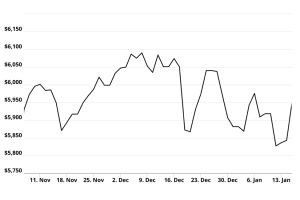Nikola (NASDAQ:NKLA) is again in focus. NKLA stock is up about 3% so far in Friday’s trading session as investors wonder about a reverse stock split.
Really though, the discussions began swirling last week when the electric vehicle (EV) maker received a delisting notice from the Nasdaq. That notice came as the stock was not maintaining minimum price requirements.
The exchange requires a stock to trade above $1. If the stock closes below that mark for 30 consecutive days, then the company gets a delisting notice. Nikola then has 180 days to remedy the issue. In this case, NKLA stock must close above the $1 mark for 10 consecutive days.
That was reported on May 25, and at the time, we noted that Lordstown Motors (NASDAQ:RIDE) had recently struggled with the same issue. In response, the firm initiated a 1-for-15 reverse stock split in an effort to boost its share price.
In fact, we wrote that “Shareholders shouldn’t be surprised if Nikola’s management goes this route too.” Now that potential is inching closer to reality.
As Reuters reported, “[Nikola] may execute a reverse stock split if its stock does not comply with Nasdaq’s minimum bid price requirements within a certain period, its chief executive Michael Lohscheller said on Thursday.”
In a webcast, the CEO further added, “We believe we will be able to regain Nasdaq compliance and will work to ensure Nikola common stock is not delisted.”
NKLA Stock Faces a Tough Road
Despite Friday’s rally, NKLA stock is about flat for the week and is hovering in a tight range. That said, shares are less than 5 cents off from the stock’s 52-week low of 55 cents.
So far, investors are struggling to find the bullish catalyst to bid this name higher.
Even though there is some chatter about a potential reverse stock split, many investors know this often does not come from wanting to do so but rather needing to do so. The risk of delisting may be low now (because a reverse stock split can get the stock back in compliance), but it’s a risk nonetheless.
While a reverse stock split will temporarily remove that risk, it doesn’t solve the issue of actually improving the business. Building EVs is an expensive business, particularly for a younger company.
Last quarter, Nikola generated $240 million in cash burn vs. about $200 million per quarter last year.
At a time when profits are hard to come by and when cash burn is going up — not down — investors may find it hard to get too bullish on NKLA stock in the short term.
On the date of publication, Bret Kenwell did not have (either directly or indirectly) any positions in the securities mentioned in this article. The opinions expressed in this article are those of the writer, subject to the InvestorPlace.com Publishing Guidelines.




